Olivia Rode Hvass
Sticks on Fire, Hands in Bloom
Curated by Shin Sumin, Kim Min
INFORMATION
Artist(s): Olivia Rode Hvass
Curator(s): Shin Sumin, Kim Min
Type: Exhibition
Location: 00.00
Dates: Nov. 10, 2023 → Nov. 26, 2023
Photographer: 00.00
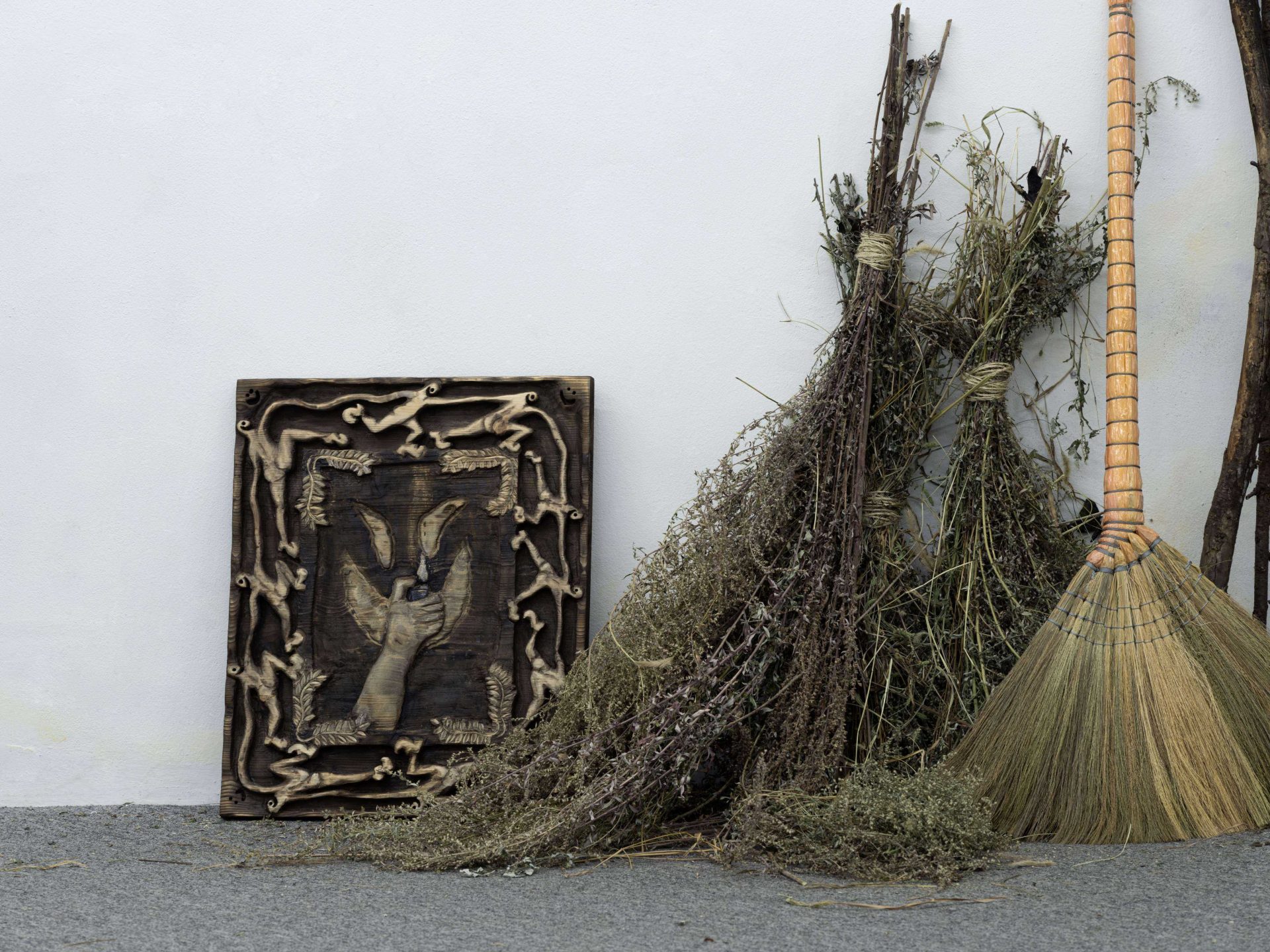
IMAGES
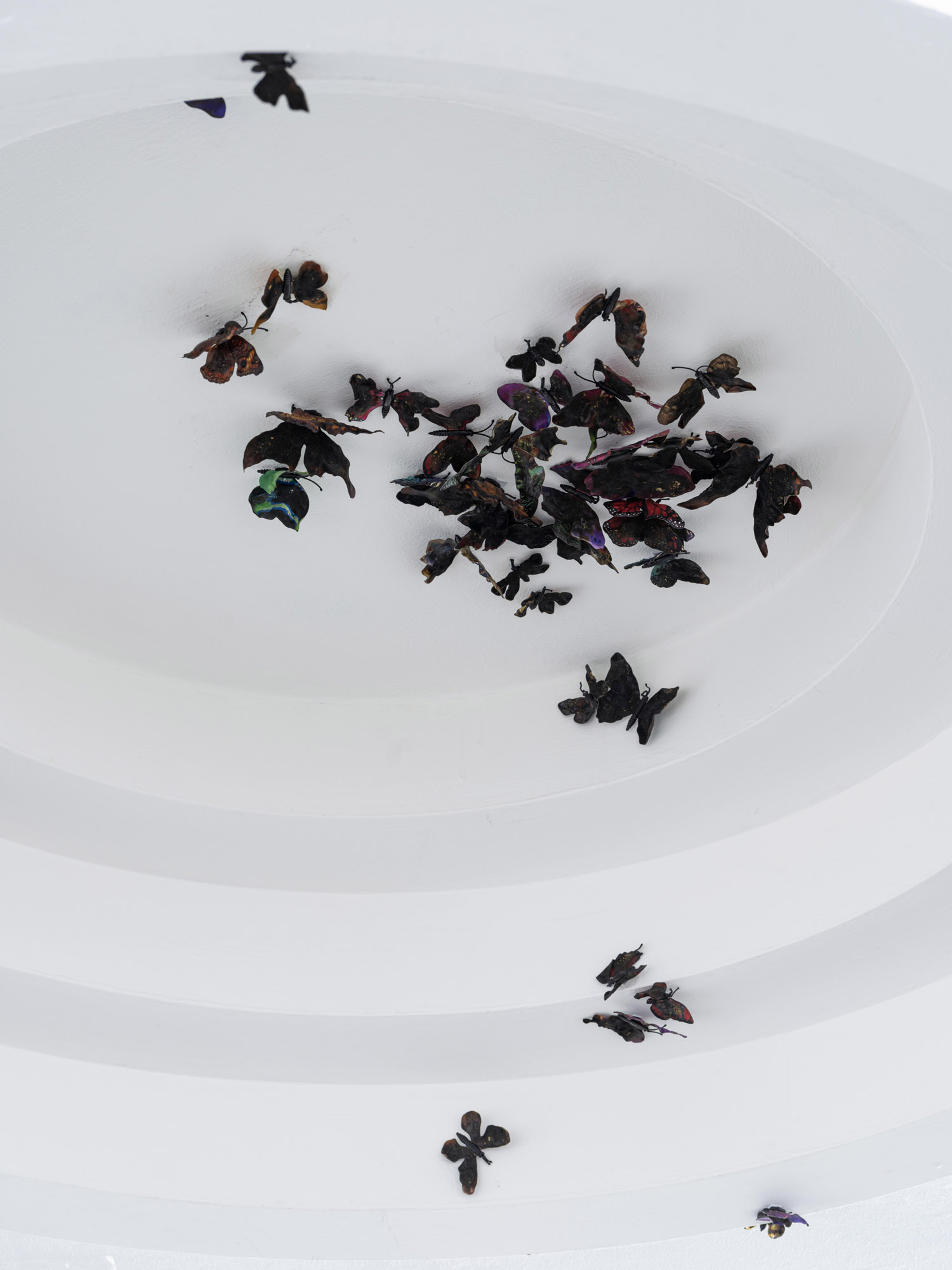
2023, Detail
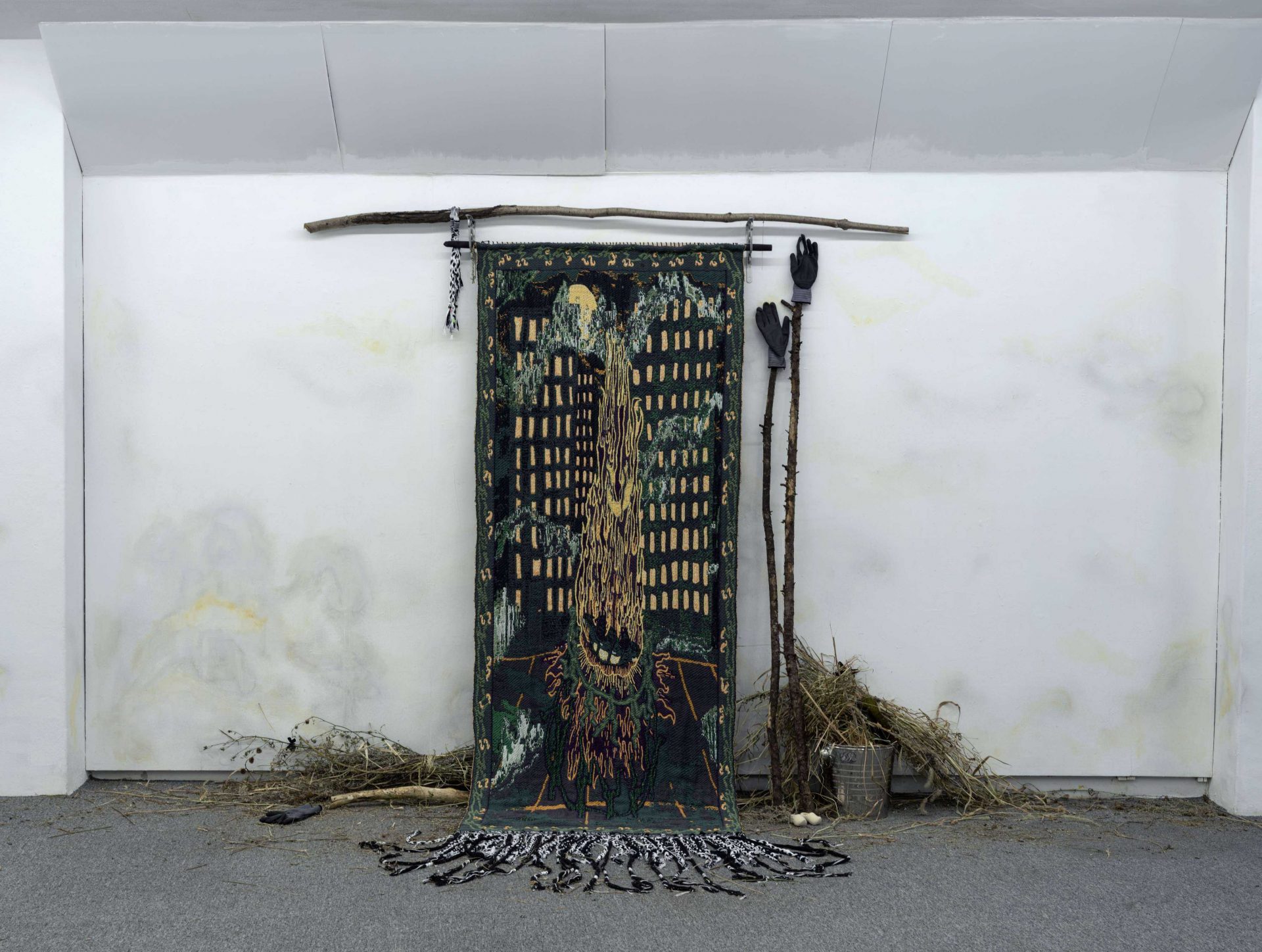
De varme hænder ( Hot hands!) 2023, TC2-woven tapestry made at Huhmarkangas Studio, Finland, cotton, jewelry, heart hangers, sticks and flora, work gloves, wooden shoes
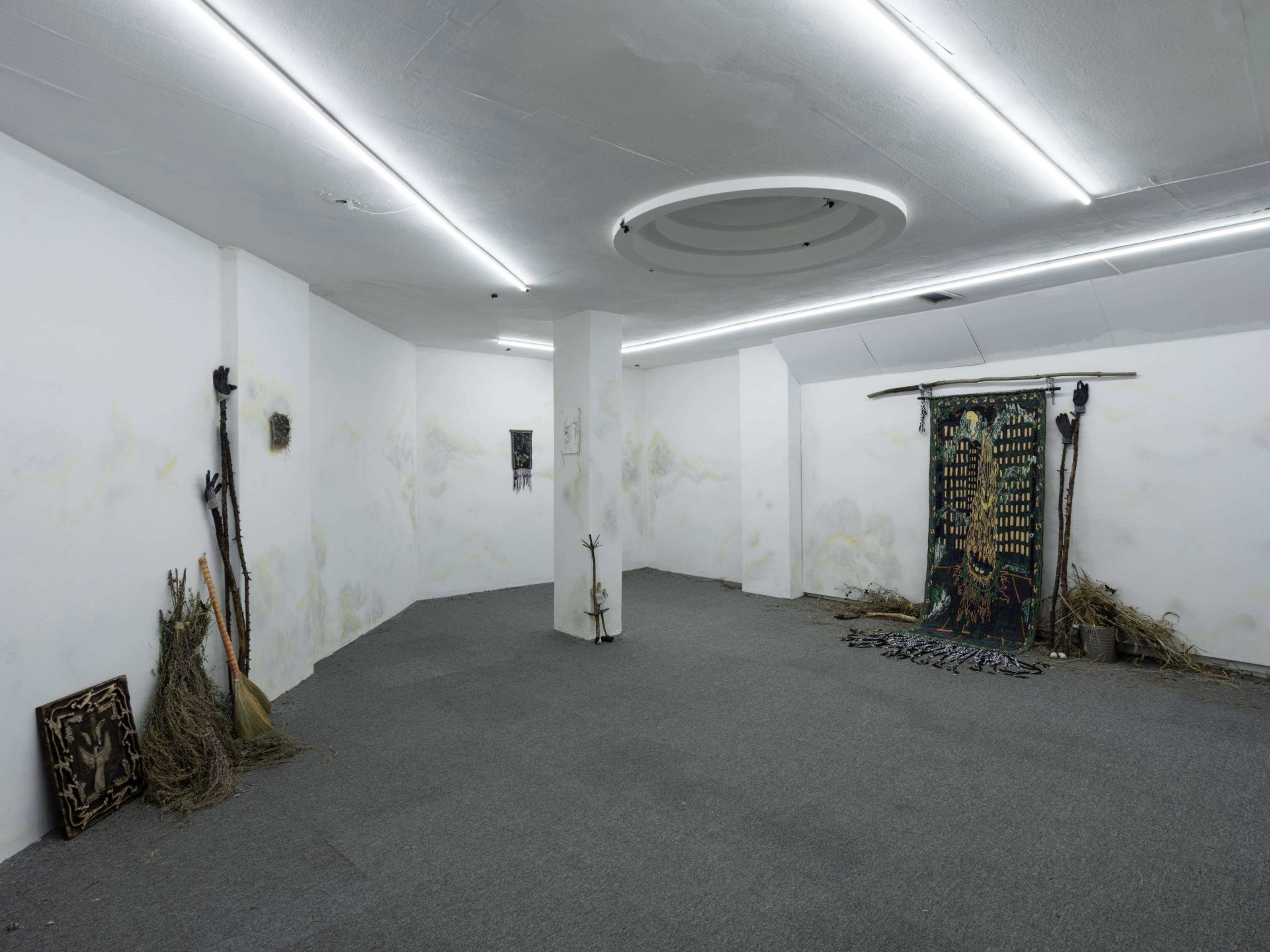
Installation view
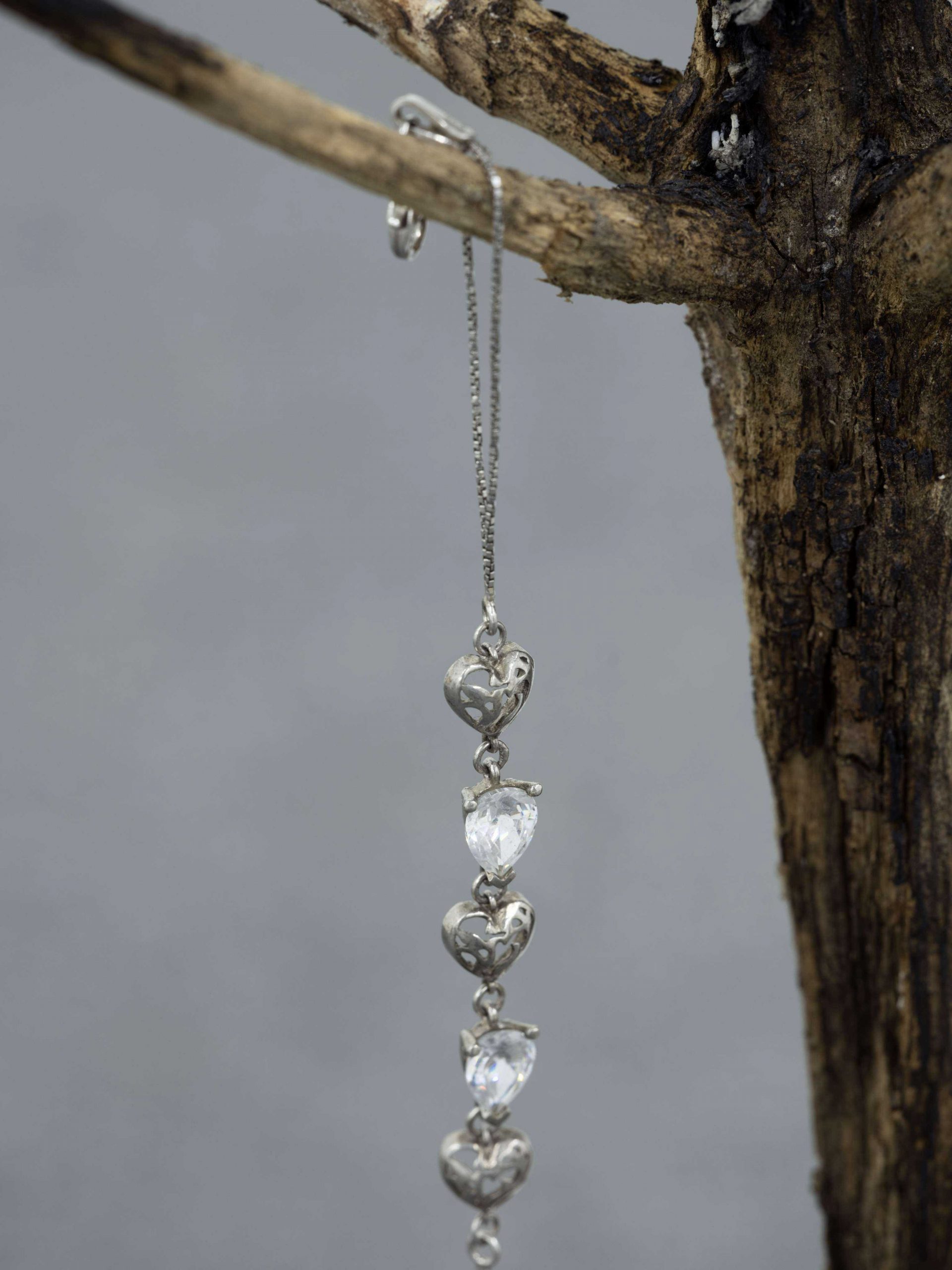
Installation detail
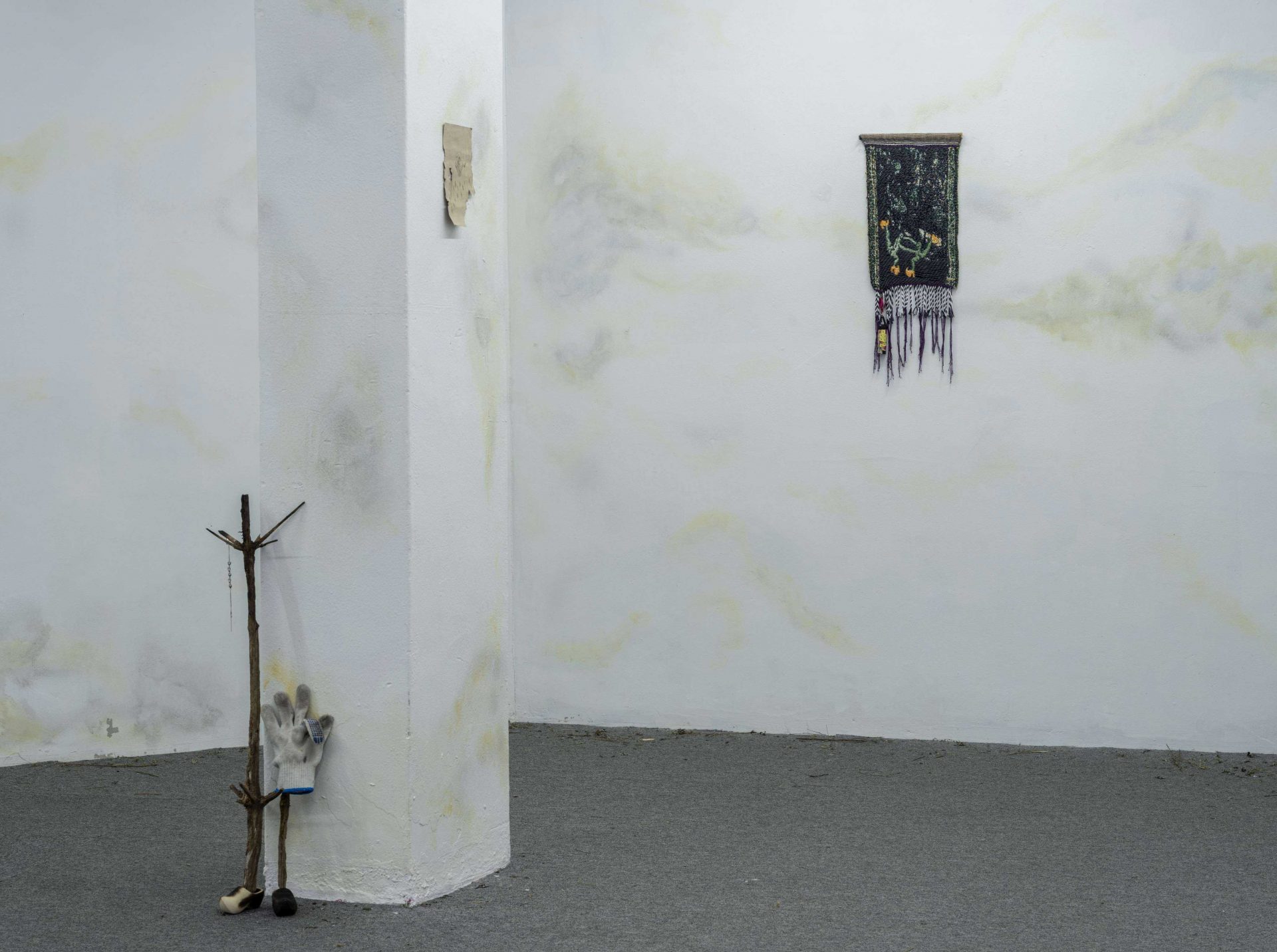
Installation view
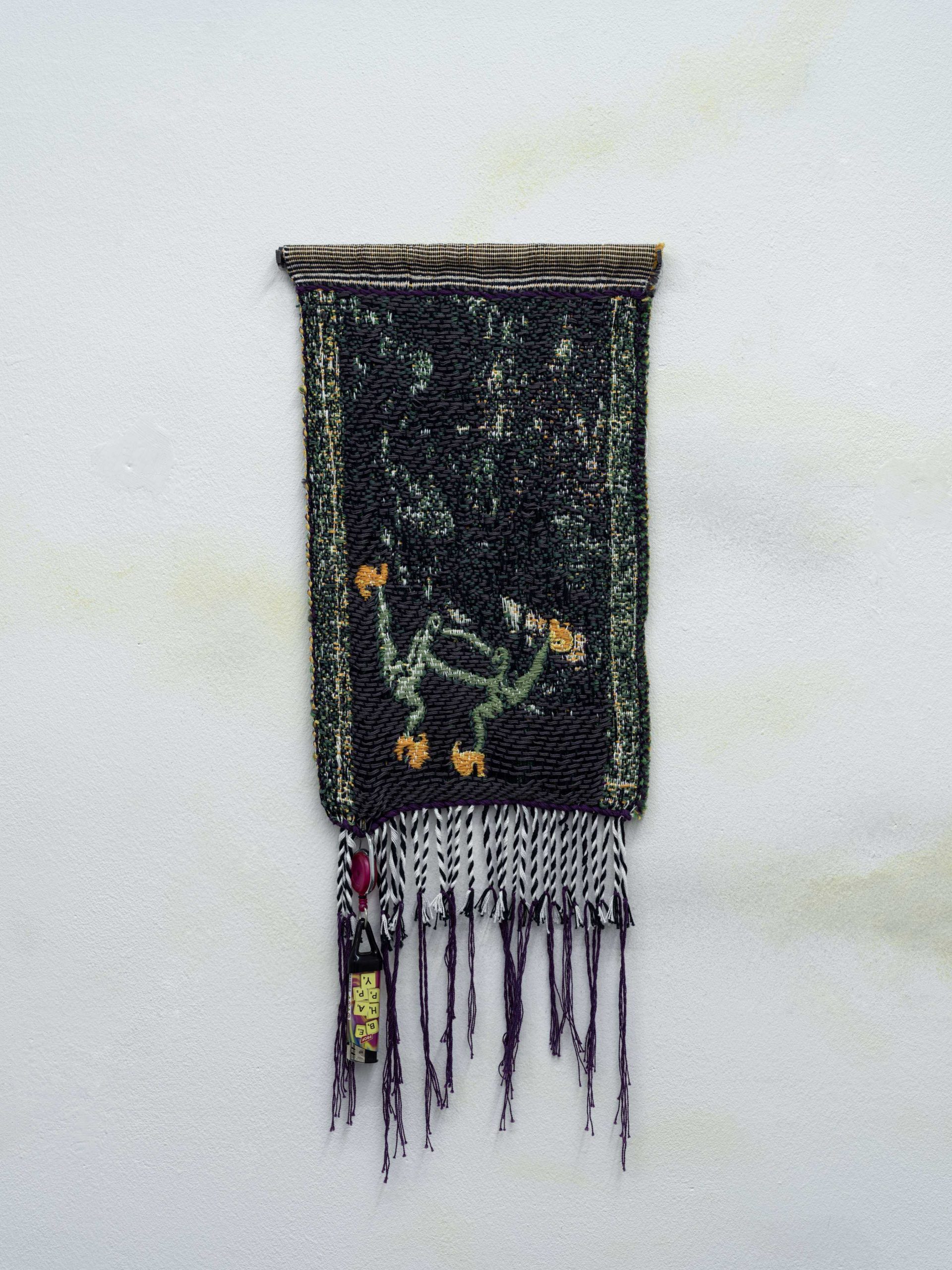
"De varme hænder (Hot hands !), (3)", 2023 TC2-woven tapestry made at Huhmarkangas Studio, Finland, cotton, lighter leash with “Be Happy” lighter
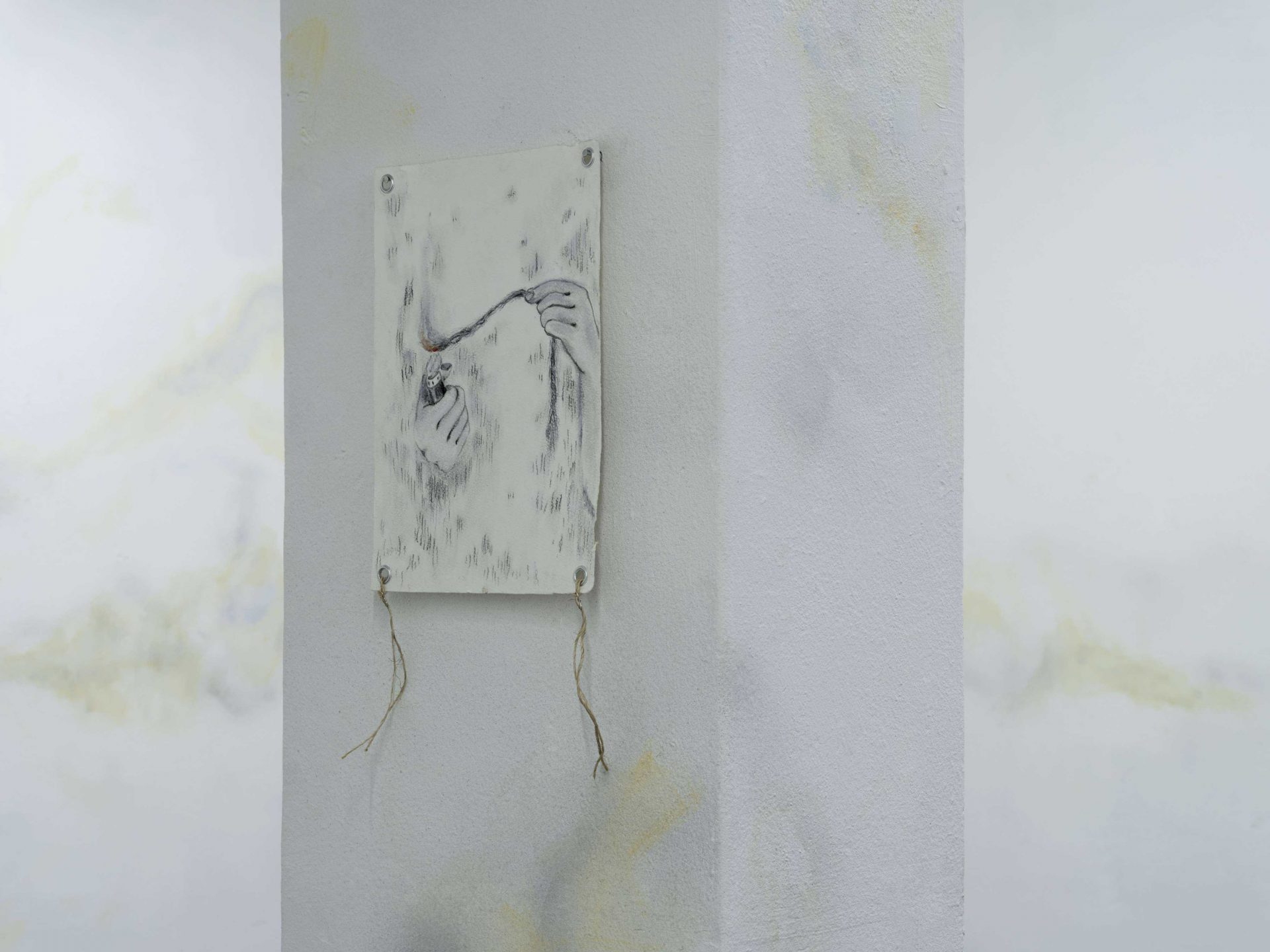
"Sticks on fire, hands in bloom" 2023, Coal and pastel on paper, natural string, jewelry
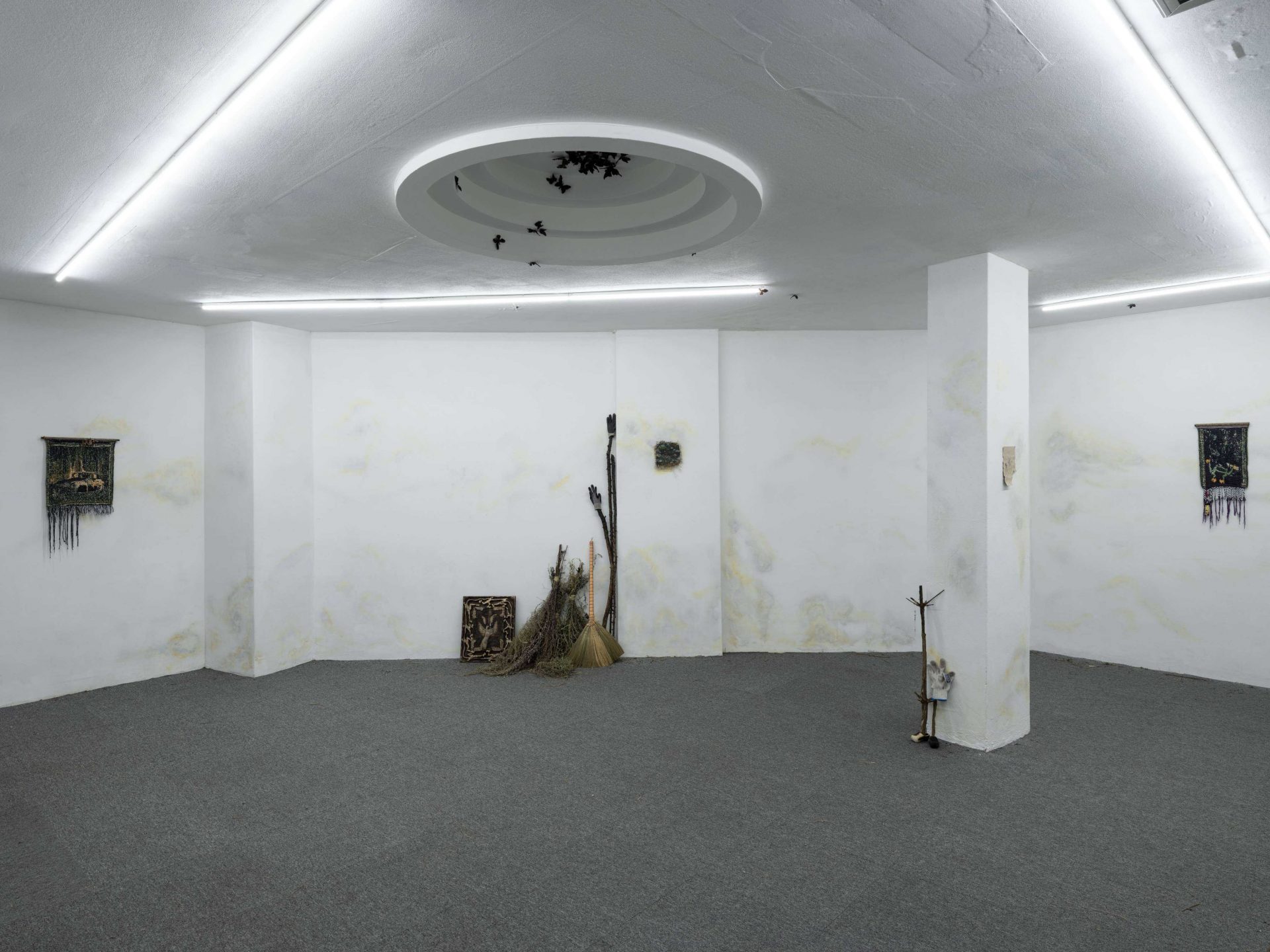
Installation view
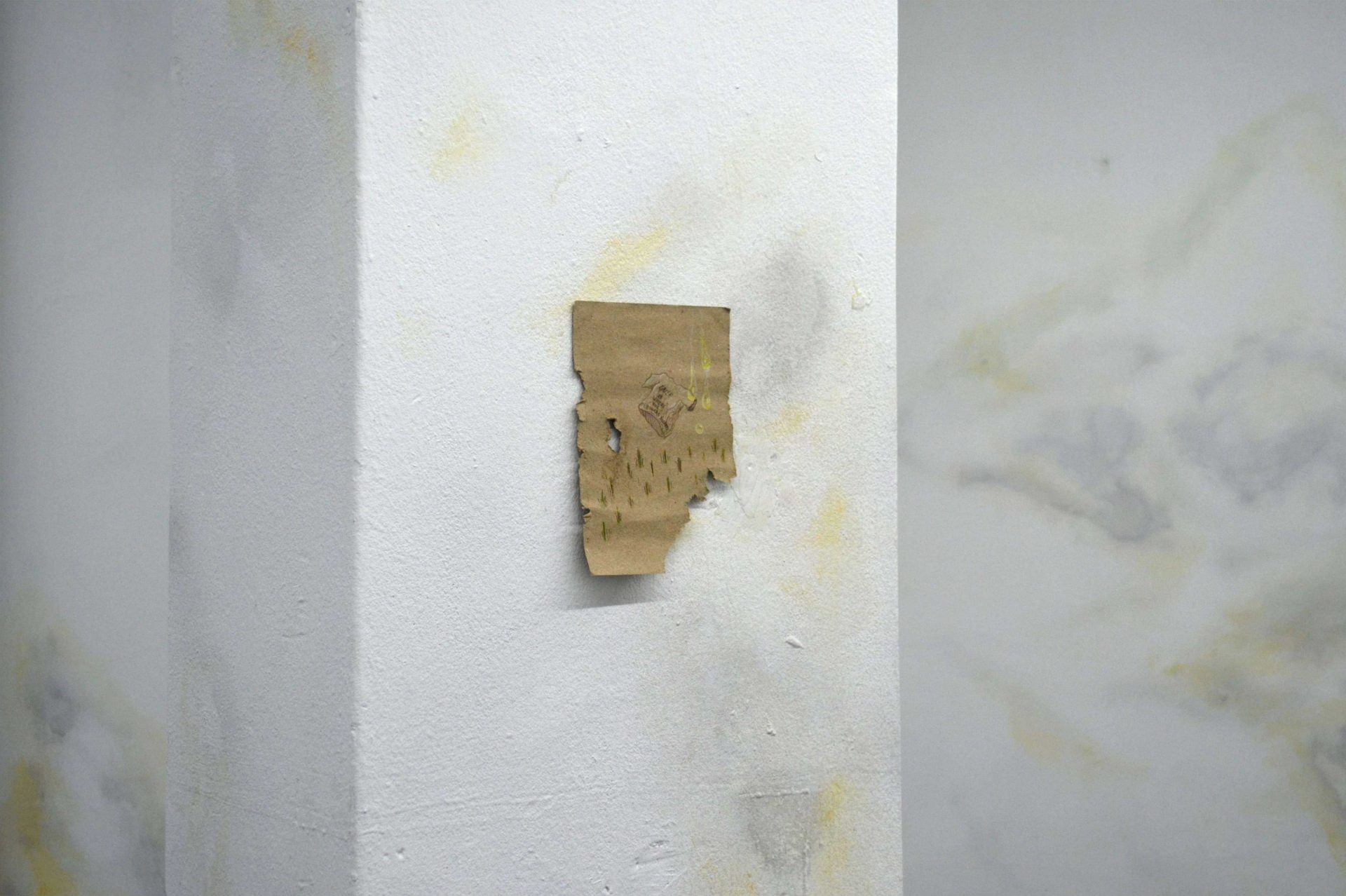
"Flying T-shirt (Grief is where the flowers bloom)" 2023, Pencil on paper, quote borrowed from a poster made by activist/artist group FCNN

"De varme hænder ( Hot hands!)" 2023, Carved and burned wood & Embers, 2 acrylic paint and pastel on jute
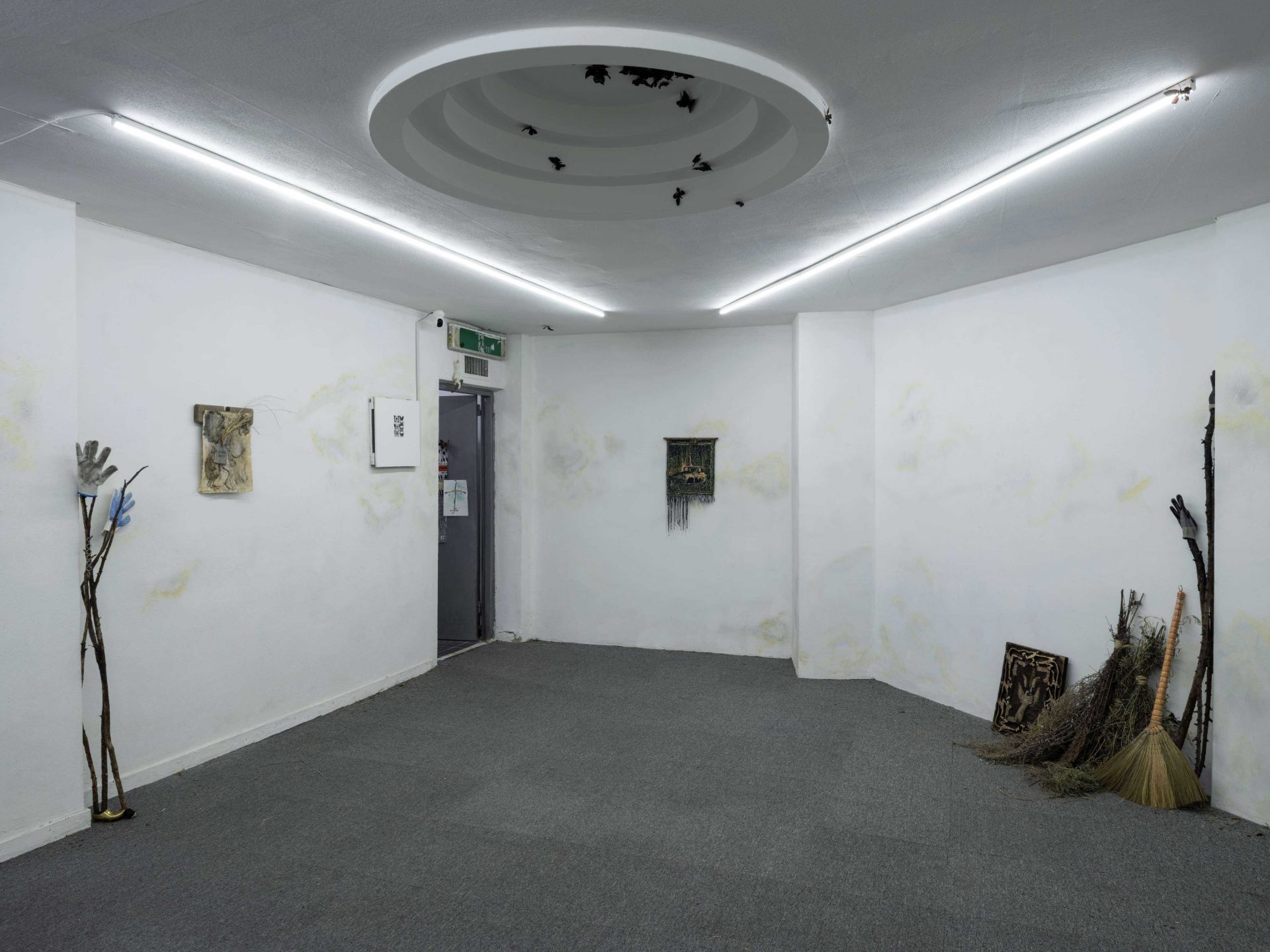
Installation view
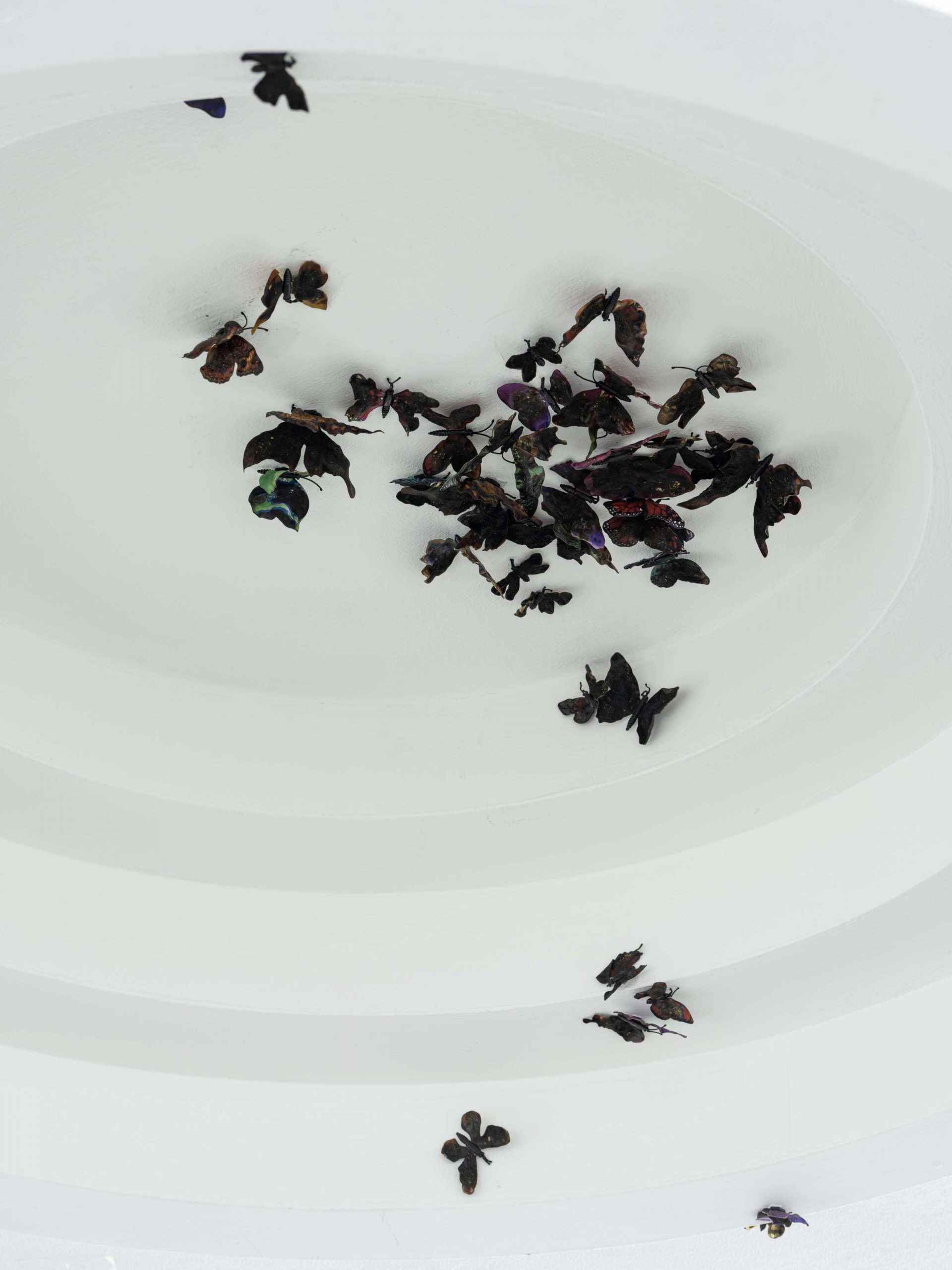
Installation view (burned plastic butterflies)
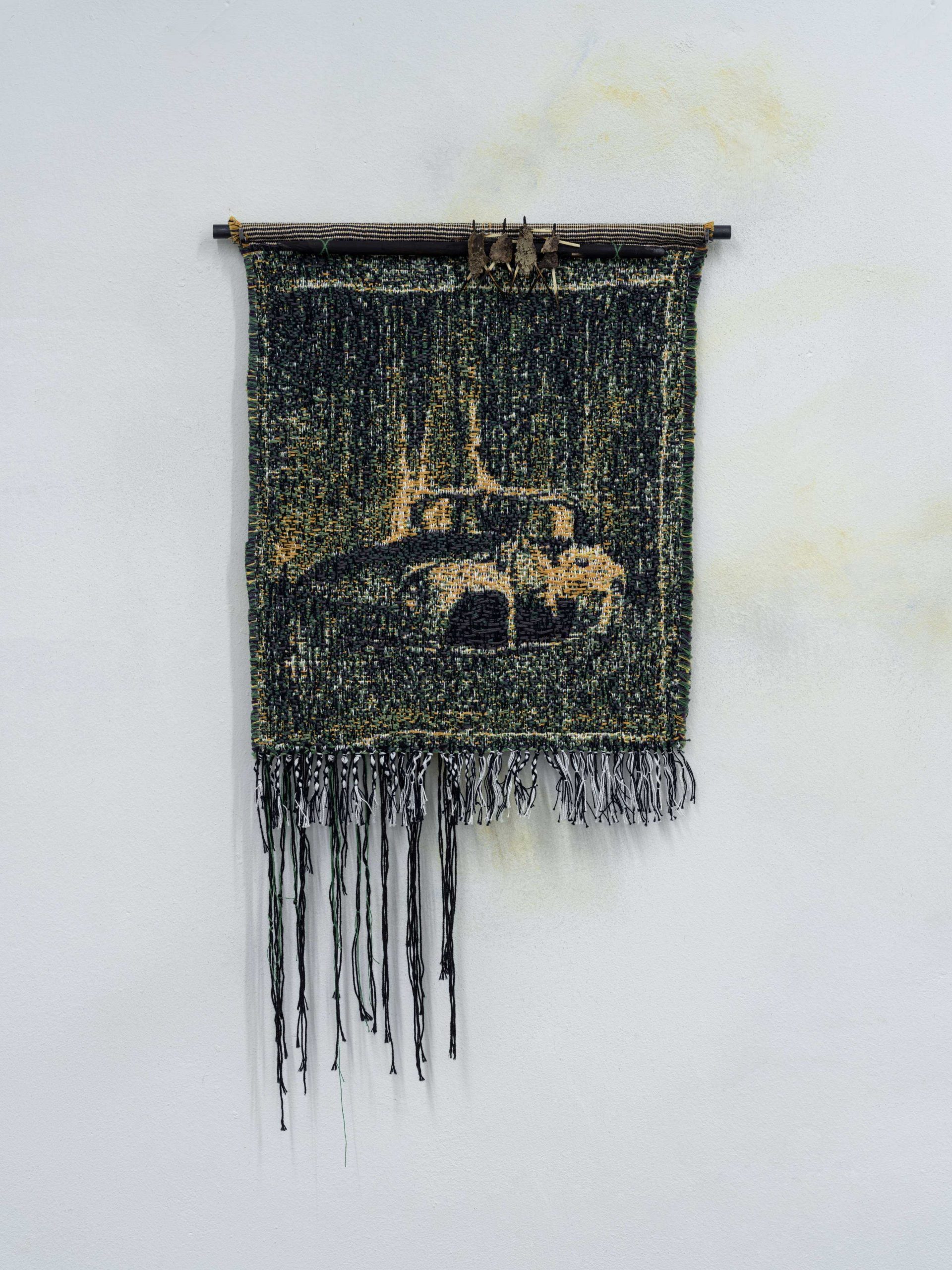
"Suddenly the sky was bright" 2023, TC2-woven tapestry, burned wood, yarn, matches, iron
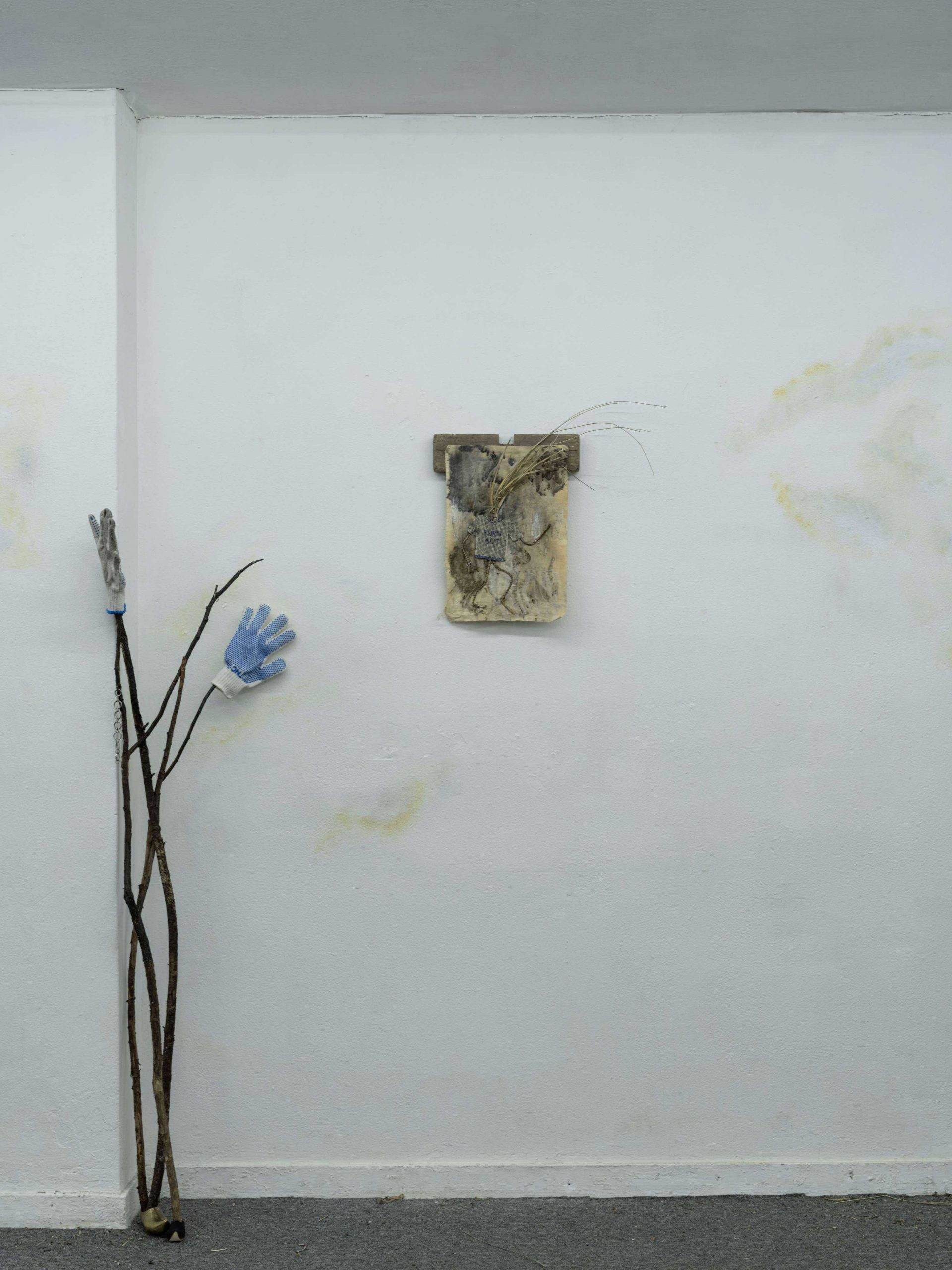
Installation picture / Burnout Man / PUSH! PUSH! PUSH! PUSH!
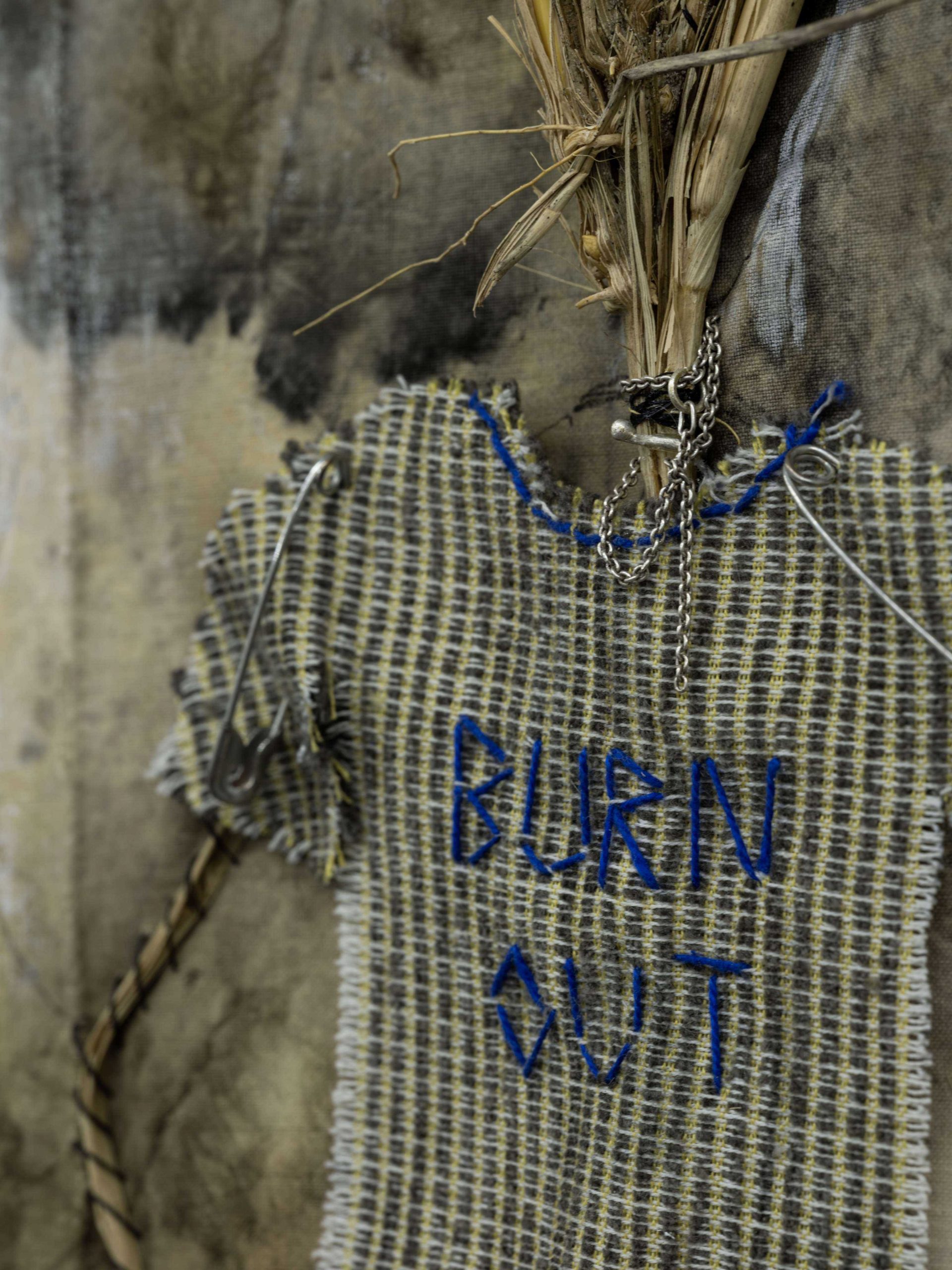
Detail "Burnout Man / PUSH! PUSH! PUSH! PUSH!" 2023, Ecoprint on fabric, hay, fabric scrap, jewelry, wood
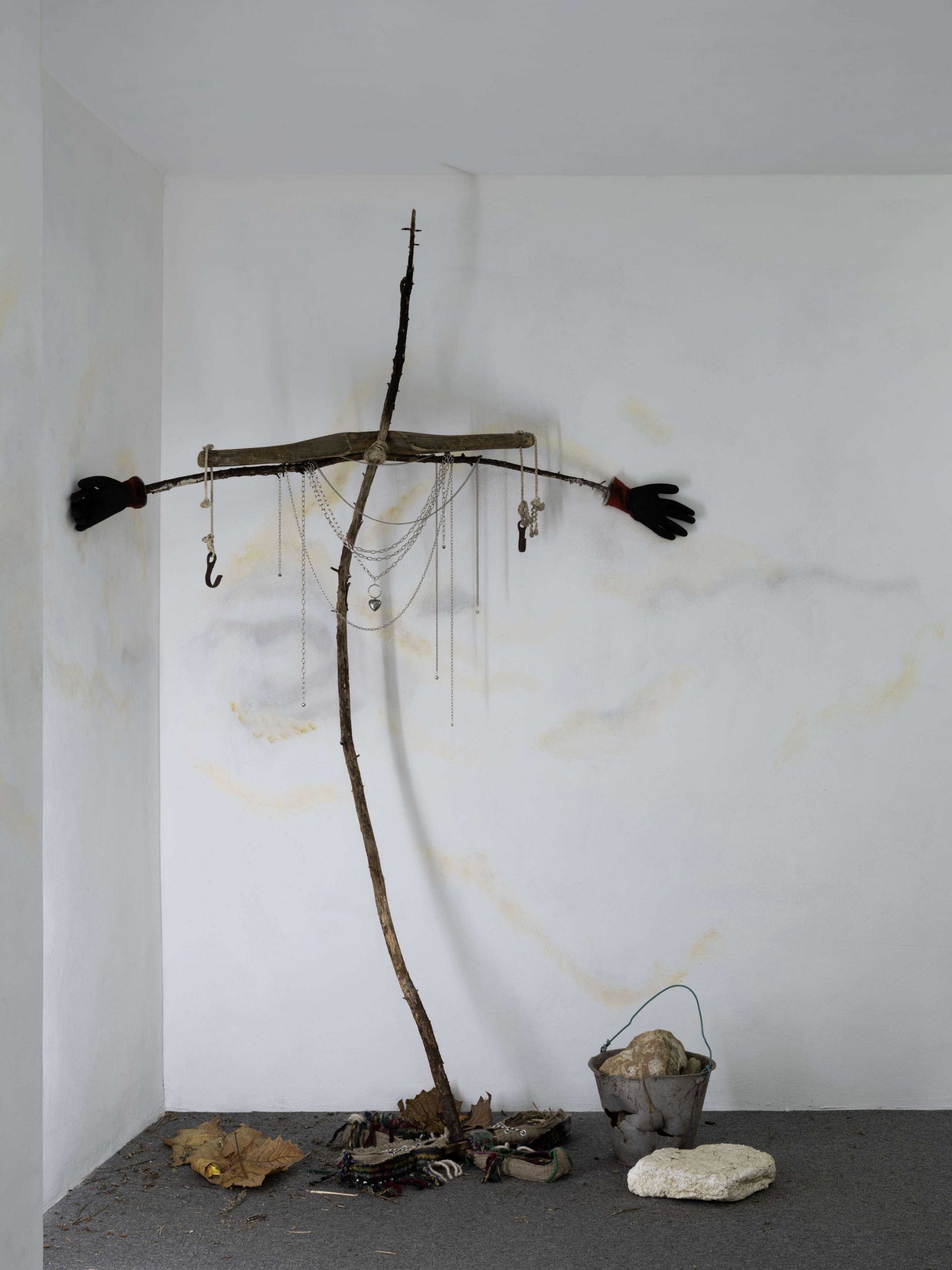
"The Cleaner" 2023, Sticks, yoke, bucket, stones, jewelry, burned wood, custommade shoes - jute, blanket, jester-bells, leaves, painted washboard
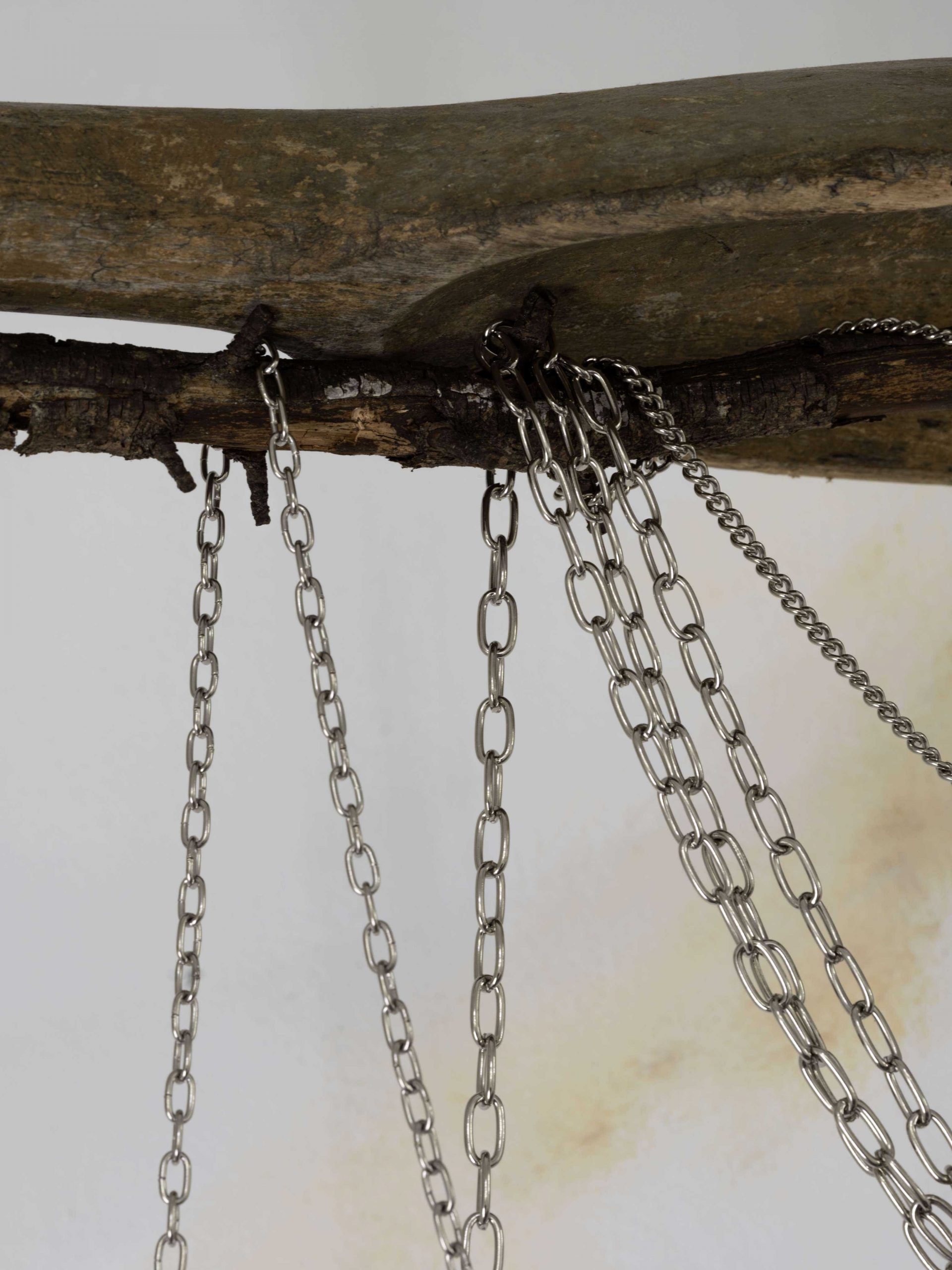
Detail "The Cleaner" 2023, Sticks, yoke, bucket, stones, jewelry, burned wood, custommade shoes - jute, blanket, jester-bells, leaves, painted washboard
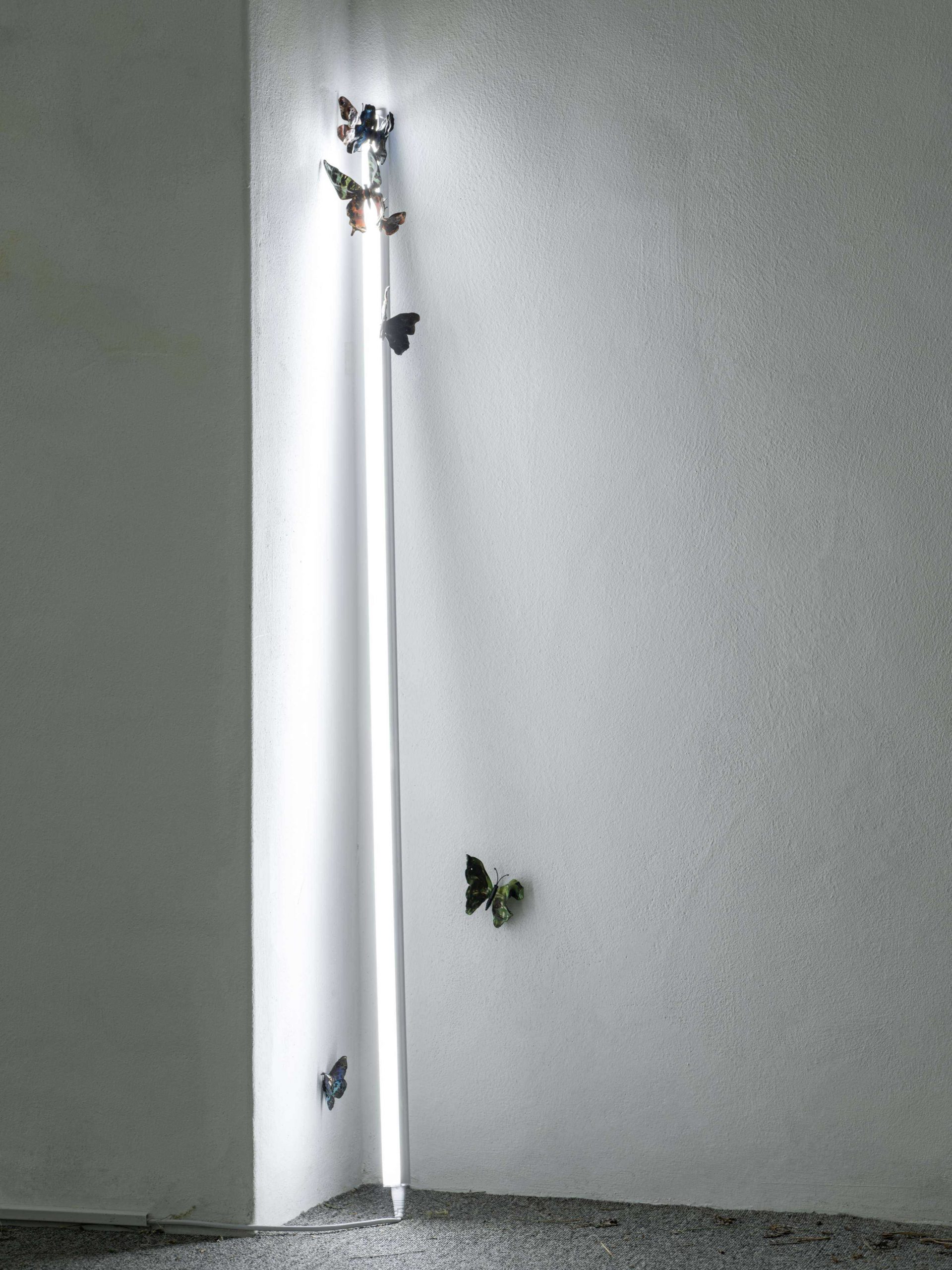
Detail "The Cleaner" 2023, Sticks, yoke, bucket, stones, jewelry, burned wood, custommade shoes - jute, blanket, jester-bells, leaves, painted washboard
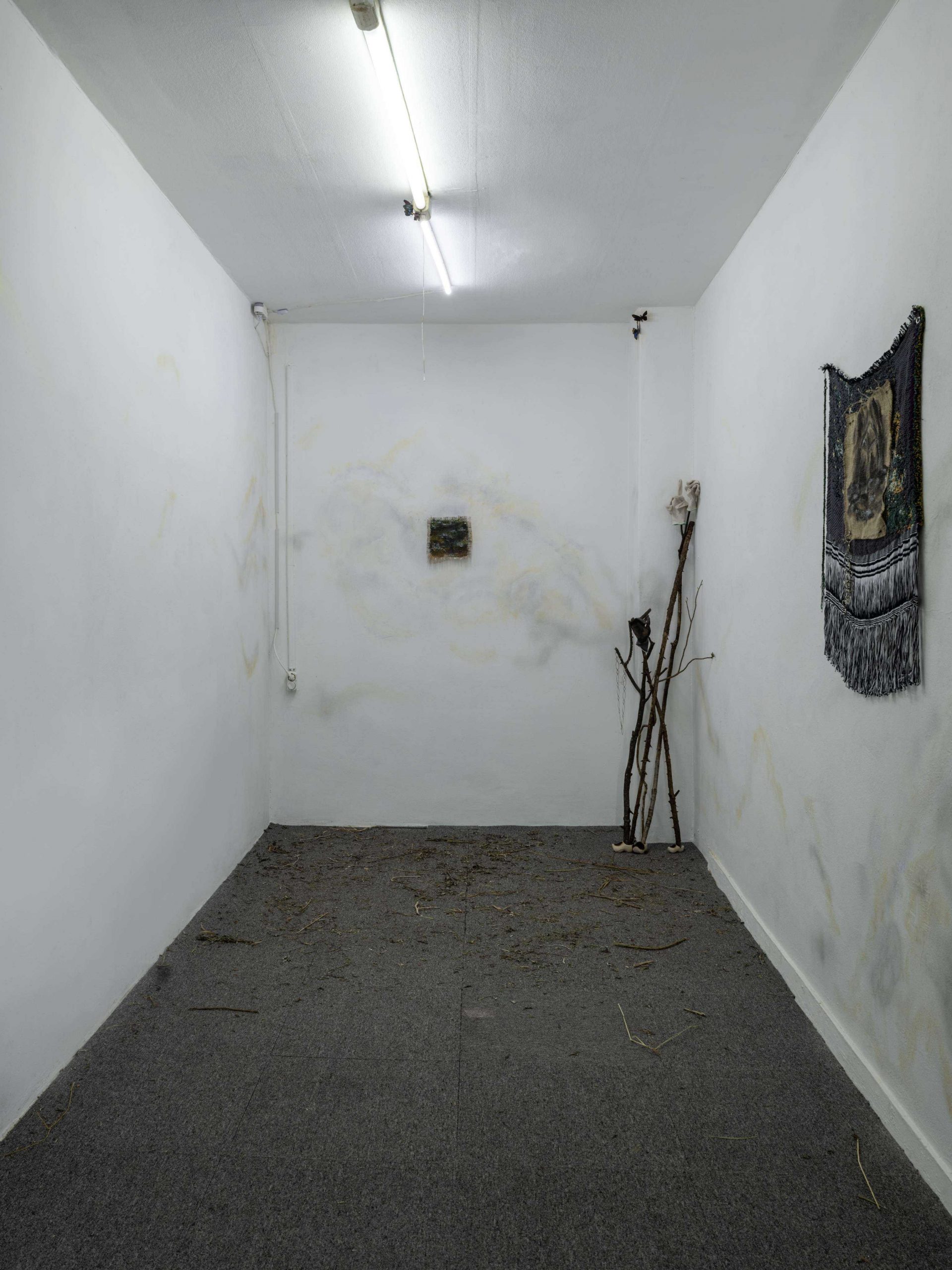
Installation view
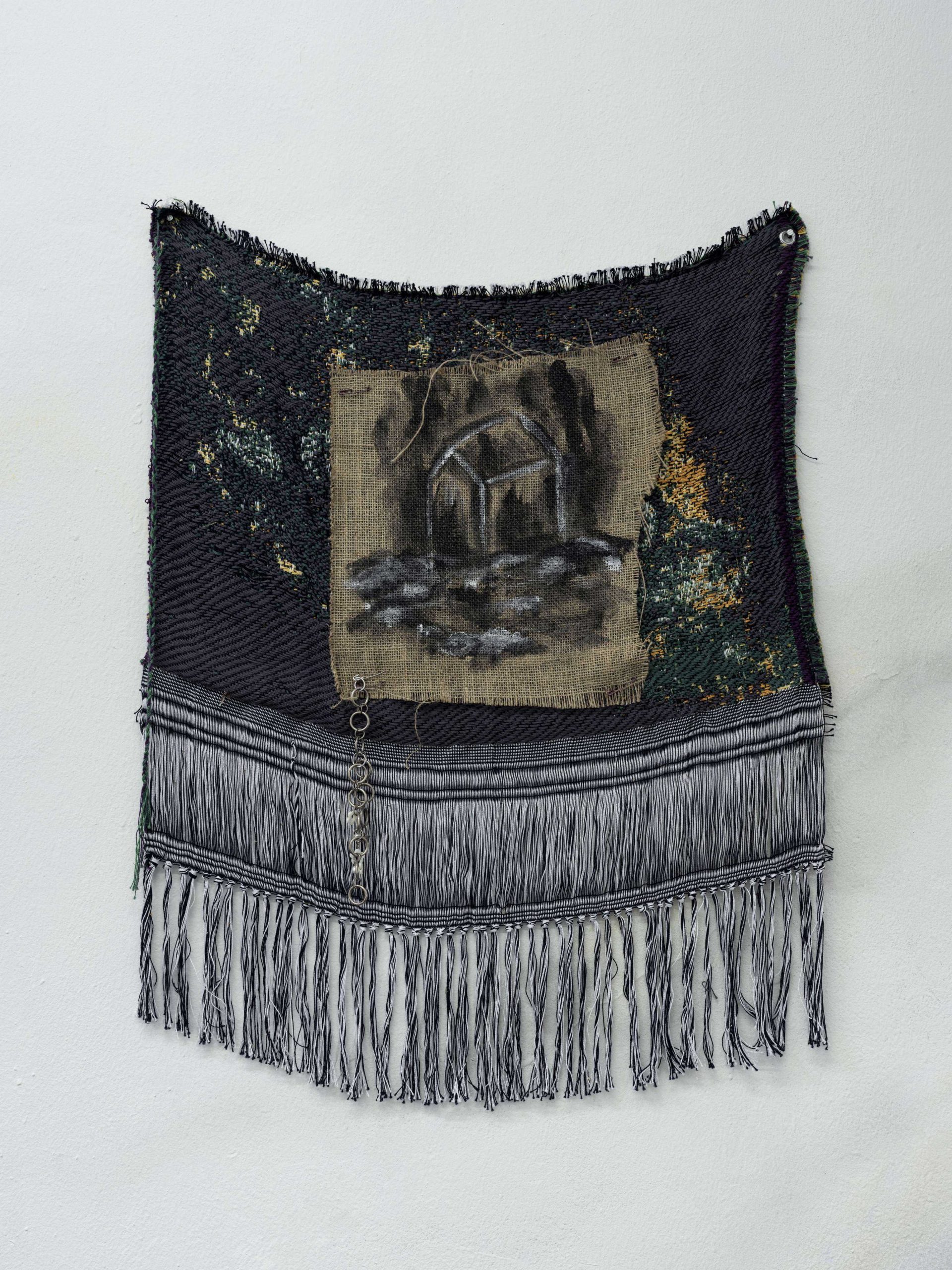
"The House" 2023, TC2 woven tapestry made at Huhmarkangas Studio, Finland, acrylic paint on jute, floral necklace
TEXT
A Strong, Joyous, and Strange Spell for Invoking Creation Olivia Rode Hvass's solo exhibition <Sticks on Fire, Hands in Bloom> offers a modern interpretation of "burning" as a motif in history and mythology. The exhibition imagines a new landscape of solidarity that reverses contemporary discrimination and conflict. The installation, which consist of sculptures, tapestries, and drawings, tell a story that intersects the past and the present, drawing on Nordic traditional rituals, local natural objects, European costumes, and social events. A large fire blazes brightly. People dance around it, holding hands. In Denmark, a tradition of lighting bonfires and dancing around them has been passed down for centuries, around the time of St. John's Day, when the days are longest. Once a solemn ritual reminiscent of a campfire, this festival has now become a mere amusement, but it was once the scene of murder, where women accused of being witches were burned alive. It was a place of horrific destruction created by collective fear and persecution of a society against a minority. Even today, at times, the festival continues the history of sin by burning effigies of witches, mocking hatred. Olivia's work is profoundly inspired by this tradition, transforming the bonfire into a modern ritual that interweaves myth and reality. Tapestries of landscapes rise up like bonfires, and natural objects are scattered like ashes left after destruction. Cars burn and fall between buildings, and people wearing decorative shoes dance around them, holding hands. The shoes are both the bells of the court jester and the clogs of the worker. A scarecrow, representing a witch, stands with its arms outstretched, as if to embrace new life. Sand, stones, grass, flowers, branches, and reeds are scattered around it, surrounding the place of destruction. It may look like a desolate ruin after everything has been burned. Yet, it also hints at the healing power that nature always possesses. “Sticks on Fire, Hands in Bloom” visualizes the enduring threads of discrimination and oppression, woven into the very fabric of society like the warp and weft of a tapestry. This discrimination and oppression does not stay in the past, but continues to be directed at new "witches" today. It is directed not only at elderly women, women of color, poor women, indigenous women, and immigrant women, but also at social minorities such as LGBTQ+ people, low-income people, workers, and immigrants, not limited to women. The title of the work, "warm hands" is an expression that refers to caregivers in Denmark, including nurses. It expresses the role of nurses who gently caress patients like a mother's touch, in contrast to "cold technology" referring to medical techniques. The phrase sounds like a compliment to nurses, but it is actually a discriminatory expression that hides the professionalism of nursing labor. Hvass’ brings to the surface the structure of discrimination hidden beneath that ambivalent and ambiguous expression. Therefore, this is a modern ritual in which myth and politics are intertwined. Tapestries that recall women's artisanal labor, wood carvings, and natural objects gathered from everyday life are combined to comfort destruction and pray for creation. It longs for and anticipates new flowers to bloom from the ashes of everything that has been burned. While putting on shoes, wrapping thread, and surrounding with flowers and trees, they caress the place of destruction, but they breathe new life into it with a strong and queer touch rather than a gentle one. The place of sadness becomes a base for resistance, and the symbol of oppression transforms into an image of rebellion. This cheerful and fearless witch, as symbolized by the humorous smile hidden in the work, joyfully affirms that life will sprout again from the ruins. Her work is a powerful reminder that even in the darkest of times, there is always the possibility of new beginnings. Olivia weaves the stories of unnamed women from different times and cultures, from women persecuted as "witches" to women discriminated against as "warm hands" By doing so, she envisions a future in which they will unite. Like the title of her work "Where Sadness Blooms" she waits for the buds of solidarity to bloom from the ashes.
Author: Written by Kwon jung-hyun. Translation by Park Ja-pyeong.